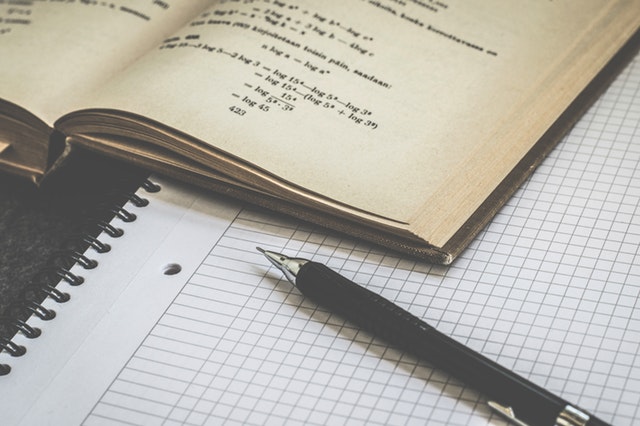Many students across the UK suffer from a fear of maths or believe that they’re simply not a “math person”. These thoughts can be incredibly detrimental to their progress and can hinder their ability to perform at their best during GCSE maths exams. A student who feels that they don’t have the capacity to learn math, will be less inclined to take the necessary steps to try because they believe that the solution is beyond them. As a parent, there’s a few things you can do at home to dispel the myth of the “math person” and build their confidence, unlocking their potential and boosting their self-esteem.
Understand the problem
What is maths anxiety? It is the negative emotional response that occurs when a person is faced with mathematical challenges. The fear and feeling of tension often leads to underperformance, a lack of confidence, and can lead to students falling behind in maths. It’s not an uncommon issue either, It’s thought to affect roughly a quarter of the population with around 2 million students in England alone, feeling some form of maths anxiety.

Much maths anxiety research has been done and Vinod Menon, a Professor at Stanford University, conducted some tests to uncover the brain activity of students who deal with math anxiety. What he found was that the anxiety elicits the same responses found with common phobias, suggesting that students are indeed scared of maths.
“The same part of the brain that responds to fearful situations, such as seeing a spider or snake, also shows a heightened response in children with high math anxiety” – Vinod Menon, PHD, Professor of Psychiatry and Behavioral Sciences
Knowing that there’s an issue and understanding how it can affect your child, can help you to provide better support and encouragement. It’s important to note that if they believe there’s a problem with their ability to understand math, it can act as a self fulfilling prophecy, so continued support and encouragement is needed.
Help Them to Relax
As mentioned above, support is key to helping your child combat maths anxiety. You can support them by reminding them to relax and by implementing breathing exercises when they feel overwhelmed. These methods, have proven to be an effective solution in reducing the tension that comes with anxiety. Professor David Sheffield of Derby University, conducted psychological research on the effect of relaxation exercises and its effect on maths performance.
“We did one study where we got people to do a relaxation exercise and then followed them up. Their anxiety scores had dropped and they were able to solve more problems.” – Professor David Sheffield
Another way to help your child to relax is to reassure them that you’ll support them no matter what the outcome. A lot of students feel the pressure to perform well for their parents and this expectation can negatively affect their performances. Similarly, perceived stereotypes of maths abilities within specific genders, cultures and races can also affect their performance. This is known as “stereotype threat” and it can induce anxiety during difficult maths questions. The fear of living up to stereotypes or parental expectations, adds an unnecessary level of pressure during your child’s exams. For more information on stereotype threat, you can view this short video below on the subject or read Whistling Vivaldi by Claude Steele.
Put Math into Terms They Understand
I’m sure at one point or another, your child has said that maths is “boring” or has asked you “when am I ever going to need this in real life?”. It’s a question you probably asked your parents when you were their age too. It’s also a question that can be used to capture their imagination and get them thinking about maths outside of the classroom and into more practical implementations within their everyday lives.
Your child may/blog/4-examples-to-prove-you-use-algebra-mo find it easier to interpret maths when it’s put into a context they can relate to. For example, if your child is a football fan. You can test their knowledge by using the stats that are presented throughout the game. If Manchester United had 65% of the possession in the first half, how much possession did their opponents have?

You could also bring them along on the weekly shop and assign them a budget for school lunches or dinners. Work with them to check prices and add up the cost to make sure they don’t go over the budget. The added incentive of buying products they want, and trying to maximise what they can get, will encourage them to think about math in a more engaging way and will help to build their competency with numbers.
Get Involved in Their Homework & Revision

Sitting with your child as they go through their maths homework will give you a better idea of what causes their anxiety. Find out where their strengths and weaknesses are, and use that information to build out more effective revision strategies.
To assist your child, StudyPug has 1000s of tutorials delivered via easy to follow videos that can be paused, rewound, and fast-forwarded, meaning they’ll never get left behind. It’s a great tool for students to learn at their own pace and StudyPug is a great source for practice materials too. The content in the videos cover all aspects of the Edexcel (Pearson), AQA, OCR, and WJEC curriculums and includes questions that are most likely to appear on math exams.
Sitting with them and spending an hour or two a day on the website can dramatically improve their performance in class and in exams. You can also utilize StudyPug’s content to research upcoming topics or review what your child is studying, so that you can provide more informed and more effective support during their homework sessions and revision.
Many students and parents who use StudyPug, prefer the video format over the traditional textbook based revision methods. This is because the video content manages to convey the same information as the books, but in a much more conversational way that’s easier to follow and understand.
Prepare Your Own Tests

A good way to make your child feel more comfortable and confident with maths is to introduce pop quizzes at home. These can consist of a few questions that test their knowledge and will reinforce their understanding, helping them to retain the information. To encourage them to participate, you could introduce rewards like choosing dessert or having extra time on the games console/mobile phone.
You may also like to use practice papers to sit informal mock exams. Whilst they are informal, you should try to adopt some exam conditions (no phones, no distractions). Try to stick to the time limit and have them answer as many questions as possible. Once they have finished the test, mark the paper for them. Once returned, review their scores together and highlight their strong and weak areas.
The results from the mock exams can be used to inform their revision content and your future pop quizzes. As they progress and sit more mock exams, you’ll hopefully both start to see improvements in their scores and in turn, a boost in their confidence ahead of their actual exams.
These are just a few short tips on how to reduce maths anxiety. Remind them that no matter what happens, you’ll be there to support them. Take the time to sit with them during their homework sessions, and introduce your own tests to further build their confidence.
For high quality revision materials, visit StudyPug today and sign up now.











